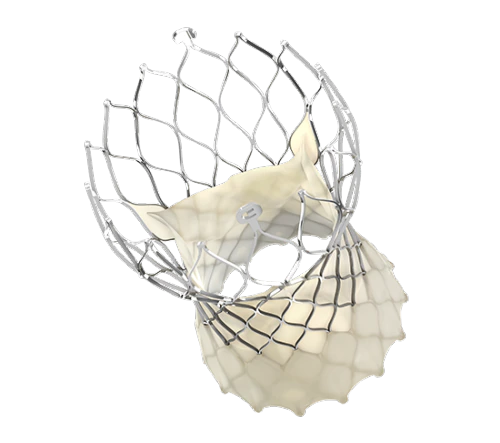Evolut PRO TAVR System – Medtronic plc (NYSE:MDT), a global leader in healthcare technology, today announced the National Medical Products Administration (NMPA) has approved the CoreValve™ Evolut™ PRO TAVR system for the treatment of severe aortic stenosis (AS) for symptomatic patients in China who are at high or extreme risk for open heart surgery.
As the first Medtronic self-expanding TAVR system approved in China, the Evolut PRO system approval is based on clinical data from more than 32,000 patients, which showed high survival, low rates of stroke, minimal paravalvular leak (PVL) and excellent hemodynamics (blood flow). Full commercial launch is anticipated in early calendar year 2022.
The Evolut PRO TAVR system is the next generation of the clinically proven supra-annular CoreValve Evolut™ R system that provides industry-leading hemodynamic performance. The recapturable and repositionable Evolut PRO valve features a self-expanding nitinol frame with an outer wrap that adds surface area contact between the valve and the native aortic annulus to further advance valve sealing performance.
“The clinical demand for treatment of severe aortic stenosis is expected to increase due to growth of the aging population in China, and we anticipate TAVR will soon be widely accepted in clinical practice given the low mortality/stroke rates and fast recovery times,” said Prof. Runlin Gao, M.D., academician of the Chinese Academy of Engineering, and former president at Fuwai Hospital of Chinese Academy of Medical Science & Peking Union Medical College. “The Evolut PRO TAVR system has shown impressive clinical outcomes and I look forward to seeing it benefit more patients throughout China.”
The approval is based on data from high- and extreme-risk patients across Medtronic-sponsored studies and real-world registries with the CoreValve Evolut TAVR platform. Implanted in more than 400,000 patients in 160 countries worldwide, the CoreValve Evolut TAVR platform has shown consistently low, single-digit gradients and large effective orifice areas that promote valve performance.
“Given the advantages of a minimally invasive procedure and the potential for a quick recovery, TAVR is rapidly developing in China and has become a suitable option for many elderly patients,” said Prof. Junbo Ge, M.D., academician of the Chinese Academy of Sciences (Beijing) and director of the Department of Cardiology in Zhongshan Hospital affiliated to Fudan University in Shanghai. “Medtronic is a leader in the development of innovative TAVR technology with a strong track record of procedural safety and valve durability.”
Aortic stenosis currently affects more than 5 million patients in China with the number anticipated to reach more than 7 million by 2030. Severe AS occurs when the aortic valve becomes diseased (stenotic), and the valve leaflets become stiff and thickened and have difficulty opening and closing. This makes the heart work harder to pump blood to the rest of the body and, therefore, impacts an individual’s daily activities. If left untreated, 50% of patients with severe aortic stenosis can die from heart failure in as little as two years.
“We are excited to introduce the Medtronic supra-annular, self-expanding and recapturable TAVR platform to physicians and their patients in China as we look to expand access to our technology in new geographies,” said Nina Goodheart, president of the Structural Heart & Aortic business, which is part of the Cardiovascular Portfolio at Medtronic. “We have a tremendous opportunity to positively impact many patients with severe aortic stenosis in China.”
